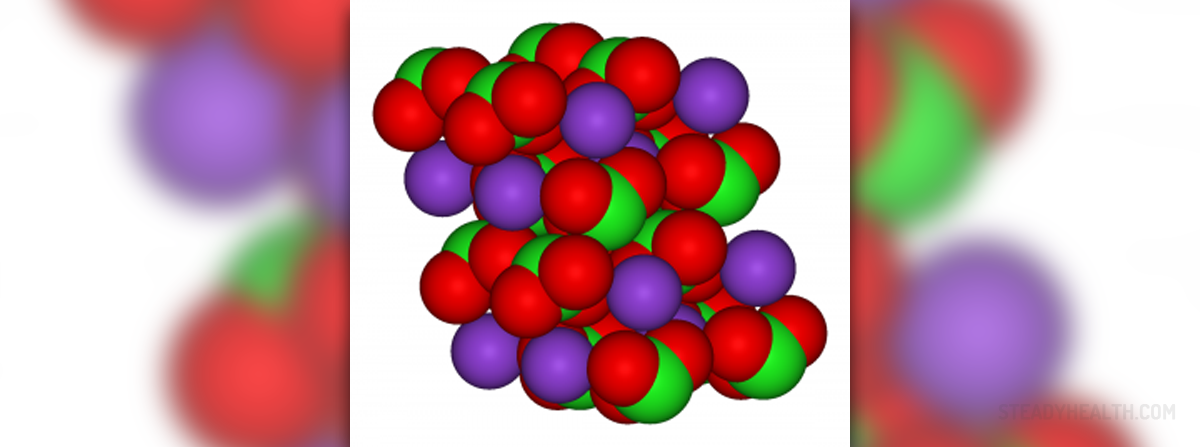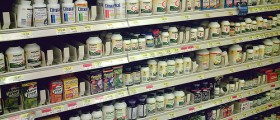
Potassium
Potassium is an electrolyte required by the body for healthy functioning of nerves, muscles and other organs. Potassium is a positively charged ion stored within the body cells. Unlike potassium, sodium and chloride are electrolytes found outside the body cells. Other electrolytes present in the body are calcium and magnesium. Magnesium is important for maintaining potassium concentration in cells. Sodium and potassium need to be in balance to prevent metabolic disturbances and different diseases. Potassium is naturally found in a variety of, vegetables, fruits and grains.
Role of PotassiumPotassium is important for body growth and maintenance. It regulates nerve and muscle activity. The mineral is needed for muscle contraction and nerve signal transmission. Potassium is required for metabolic process of energy production where carbohydrates are stored to be used by muscles as fuel. Also, function of the heart as well as process of digestion requires potassium. The brain and kidneys need potassium too in order to function properly. Being an electrolyte, potassium stimulates the brain function and promotes memory and learning. Potassium reduces anxiety and stress and maintains water balance in the body. The mineral plays a role in maintaining blood sugar level and it reduces the risk of high blood pressure and heart disease by balancing blood pressure.
Deficiency of PotassiumDeficiency of potassium is uncommon since the mineral is present in wide variety of foods. The deficiency may occur due to increased urination as a result of taking certain medications. When diet is low in potassium and high in sodium it can lead to high blood pressure. This is often treated with diuretics that cause increased urinary loss thus lead to potassium deficiency. Potassium deficiency can also result from prolonged vomiting or diarrhea. Kidney disease and congestive heart failure can too cause potassium deficiency. Symptoms of potassium deficiency are: fatigue, headaches, palpitations, anemia, muscle weakness, confusion and irritability. Severe symptoms of potassium deficiency include: hypertension, diabetes, intestinal pain and swelling in glands. Intake of foods rich in potassium or potassium supplements will help to overcome the deficiency. Sources of potassium are oranges, bananas, grapefruit, cantaloupe, tomatoes, potatoes, almonds, prunes, spinach, whole milk, chicken and sunflower seeds.
Side Effects of PotassiumElevated levels of potassium in the blood, due to high intake of potassium supplements, can be toxic. Excess potassium leads to gastrointestinal symptoms like diarrhea, nausea, vomiting and abdominal discomfort. Gastritis and gastrointestinal hemorrhage are also symptoms of potassium toxicity. Furthermore, dysphagia, pyrexia, arrhythmia, loss of consciousness and cardio-respiratory arrest are symptoms of potassium toxicity.

















Your thoughts on this
Loading...